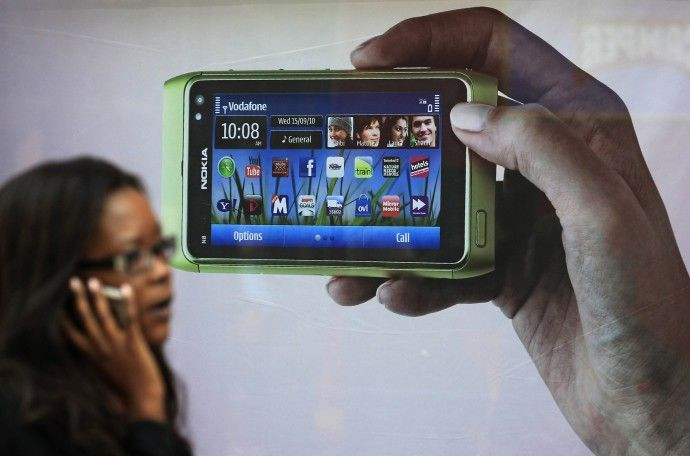Windows Phones, Spending May Not Halt Nokia's Decline

Nokia is rumored to be adding a Windows Phone 7 device to its lineup, but it isn't clear that would solve the Finnish company's smartphone woes.
Nokia Corporation has struggled in the smartphone market. A recent report from Canalys said the Android operating system beat Nokia's Symbian to become the world's top OS. Gartner said Symbian's smartphone OS share dropped to 36 percent in the third quarter of 2010 -- an 8 percentage point slide.
Perhaps even worse than its flagship OS falling so far is the money the company puts into it. Bernstein Research said the world's largest phone manufacturer spent $3.9 billion in research and development this past year. One-third of its research was spent on Symbian and 15 percent was spent on MeeGo, the nascent operating system Nokia is set to roll out in 2011.
This past year, Nokia unveiled its new Symbian OS with the N8 phone, which is meant to cater to the high-end smartphone market. But even with four million N8 units sold, Nokia has a long way to go to catch up with the likes of Apple and HTC.
The difference is especially stark considering that HTC and Apple, at $400 million and $700 million respectively, spent a lot less than Nokia on research and development and have thus far seen better results. According to research from Morgan Stanley, the iPhone 4 outsold the N8 by a total of six-to-one in Europe, Nokia's strongest market and home turf.
With all these struggles, rumors suggesting Nokia join with an operating system company, like Windows Phone 7 or Android, have sprung up. Nokia CEO Stephen Elop -- a former Microsoft executive -- did stirred more speculation when he said Nokia was willing to create and/or join other ecosystems during the company's most recent earnings call.
One analyst, Adnaan Ahmad of Hamburg's Berenberg Bank, was so high on the idea of a Windows-Nokia marriage, that he published a letter in The Financial Times urging both companies to go ahead and do it. The rumor actually caused Nokia shares to rise from $10.82 to $11.46 on Wednesday, before settling at $11.19 on Thursday.
Matthew Thornton, senior analyst for Avian Securities, is a fan of the idea. He says by adopting the Windows Phone 7 operating system, Nokia would cut down on those inordinately high research and development costs.
For the Nokia CEO, you are looking to get more efficient on models in terms of platforms. That's why there is a lot of talk to outsourcing the platform. In that case, Microsoft does the heavy lifting and Nokia can dramatically reduce their research and development, Thornton said.
Unlike Ahmad, Thornton doesn't think Nokia should ditch Symbian. He says the company has invested a lot in the operating system and done all the work to improve it. Taking down Symbian would actually cost more than moving to Windows, and there is room for both.
It's necessary for multiple platforms is you want to see to multiple markets, Thornton said. Symbian has been a proven to be a competitive platform in the low-to-mid tier markets. For Nokia, the dominant vendor in those markets, having Symbian to go after those markets makes sense. Having Windows could allow Nokia to go to market faster and turn up significant volume in established markets.
Yet, not every analyst is sold on a Windows-Nokia marriage. Pierre Ferragu, senior analyst at Bernstein Research, said this arrangement would limit Nokia's scope.
For the reasons Nokia has always suffered, Microsoft has suffered too. Desktop operating systems don't translate to the phone, said Ferragu, who added Android and iOS are more established and will be hard for Windows Phone 7 to catch. It wouldn't be the best partnership.
In fact, Ferragu is not sold on the idea of any supposed quick fix to Nokia's smartphone problem. He said a partnership with an outside OS provider would mean 12 full months before a new model would hit the market, lag time Nokia cannot afford.
Nokia, which has an announcement at Mobile World Congress later this month, did not respond to an inquiry for comment.
© Copyright IBTimes 2024. All rights reserved.




















